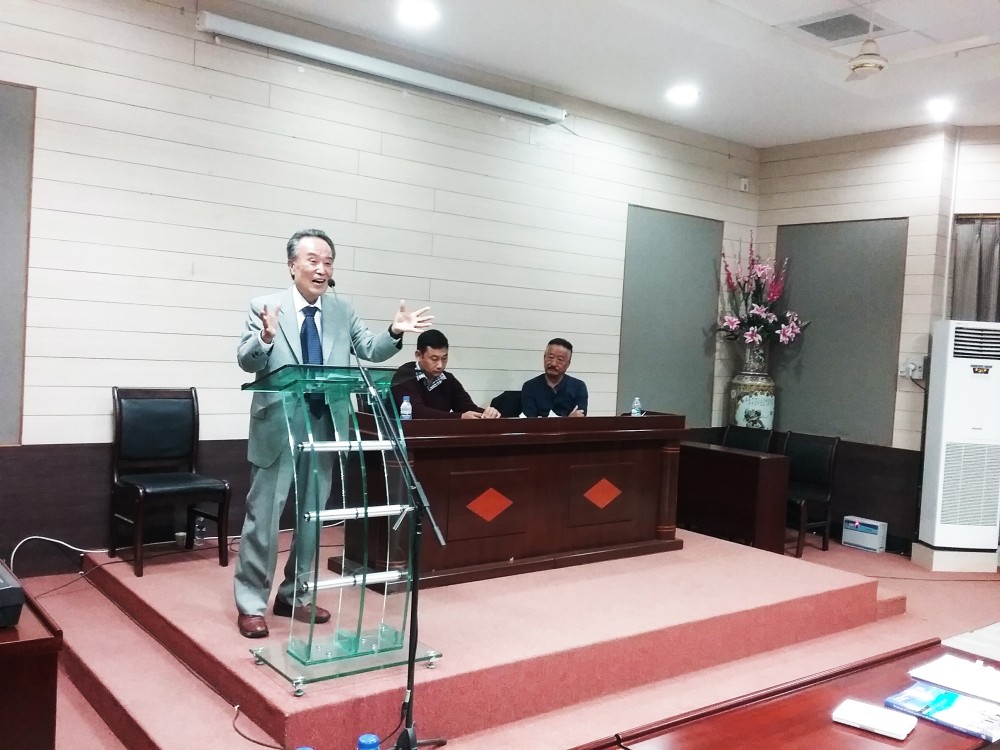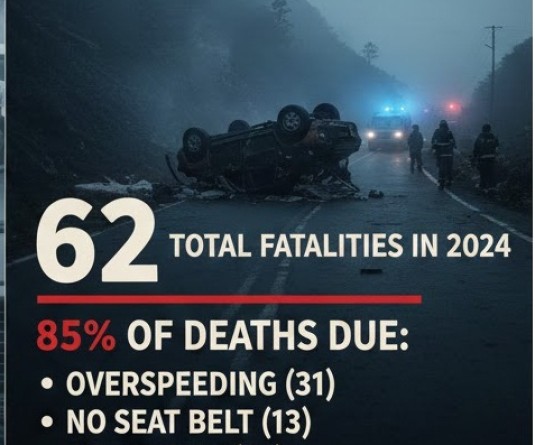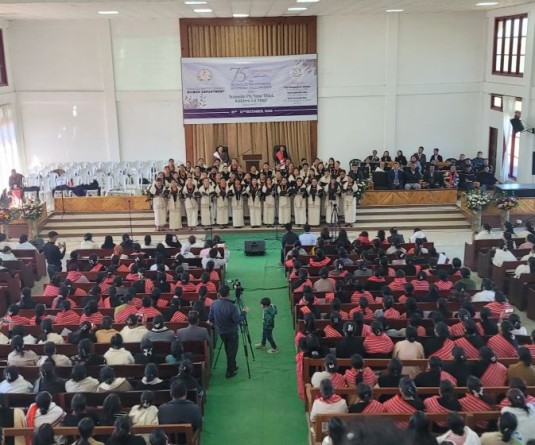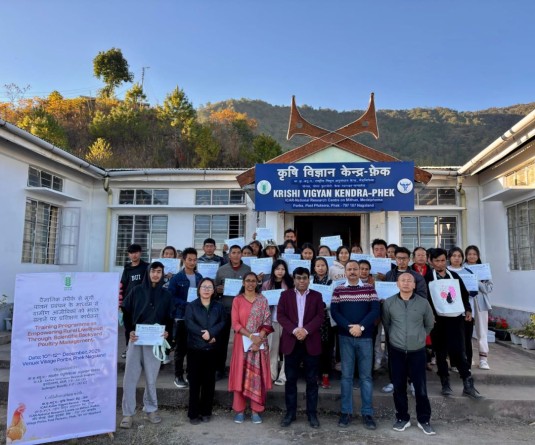Dr. Mikio Miyagi presents the Church and Society Annual Lecture, 2017, at DABA’s Elim Hall on Tuesday, December 12. (Morung Photo)

Dr. Mikio Miyagi delivers Church and Society Annual Lecture 2017
Morung Express News
Dimapur | December 13
In Okinawa, a prefecture of Japan since 1972, 32 American military bases monopolize 20 percent of Okinawa’s main island. The American military has maintained a presence there since World War II.
Of the many forms of protests that emerged from Okinawa in response to this, Rev. Osamu Taira’s prayer became a powerful voice of social justice.
An early leader of the Okinawan peace movement, Rev. Taira’s prayer was offered at the investiture of the US High Commissioner, FT Unger, in 1966. “Dear Lord, we earnestly pray…that the New High Commissioner might be the last High Commissioner it would be necessary to send us,” he prayed.
The Taira Prayer, as it came to be known, was “committed to bringing out a clear message of Christian reconciliation that promotes peace,” said Dr. Mikio Miyagi.
Dr. Miyagi, Research Fellow at the Institute for the Study of Christianity and Culture, International Christian University, Tokyo, Japan, presented the Church and Society Annual Lecture on ‘Christians and Reconciliation: Okinawa Experience.’ Organized by the Foundation for Church and Society, an initiative of the Oriental Theological Seminary, the Lecture was held at DABA’s Elim Hall on Tuesday, December 12.
The Taira Prayer
The Prayer “confronts and corrects the injustices of the US military authorities,” noted Dr. Miyagi during his presentation, which he began with an apology to the Naga people (as well as India, the UK, Korea, China and others) for the wrongs committed by the Japanese during World War II.
The US military authorities had confiscated farm lands without obtaining land owners’ consent apart from putting Okinawans through sexual assault, noise pollution, crash of aircrafts on villages and the possibility of nuclear weapons in the US military facilities.
Rev. Taira prayed in 1966 that the High Commissioner, representative of the US administration in Okinawa, “bow deeply before the dignity of the people for whom he has been sent.”
“Dear God, give us and the High Commissioner strength to accept with serenity the things that cannot be changed. Give us courage to change the things that can and should be changed. And give us wisdom to distinguish one from the other,” prayed Rev. Taira, taking from Reinhold Niebuhr’s Serenity Prayer.
He reminded the High Commissioner, through another passage, that “all Christians have the universal call to work for reconciliation,” noted Dr. Miyagi in his paper. Taira also invited the US administration, by way of the prayer, to “work together for promoting peace in the world, including the restoration of peaceful relationship between Japan and the US.”
Describing the prayer as having both “prophetic and priesthood dimensions,” Dr. Miyagi pointed out that “Christians are called to speak out against injustice when authorities act wrongly.”
“Taira exhorted all human beings, including the High Commissioner, should believe in God’s sovereignty of the world, and should be imitators of Jesus Christ in prayer.”
In Okinawa “people live an uncertain life as there is no guarantee for their security and future,” maintained Dr. Miyagi, a member of the Cumberland Presbyterian Church.
With the hope to “share, listen and dialogue” with the Naga people, he wondered if the militarized North East region had “common experiences that relate to the presence of military bases/camps?”
While Okinawa has only 1% Christians, Dr. Miyagi noted what “immense opportunities” the Naga people have with 90% plus Christians to “fight against injustice.”
Like Taira’s, he asked, “If there is a prayer that needs to be said against social and political injustices in Nagaland, what would that be and how will that prayer look like?”
Theology in context
Commending Dr. Miyagi for bringing “rare theological and ethical judgment” with a paper that is “intentional and thoroughly contextual,” Rev. Dr. Wati Aier, Convener of the Forum for Naga Reconciliation, noted that the paper invites Naga students of theology and people working with churches to reflect on “what we are doing (with theology) in our context.”
Dr. Wati was the respondent for the 2017 Annual Lecture.
He stated that “all theology reflects politics.” Thus, “to be silent reflects your theology; to be an activist reflects your theology.”
Observing that “we need an ethical system to face the moral challenges of everyday life,” Dr. Wati maintained that the Church holds in it the “political people of God.” Dr. Miyagi concurred that when faced with injustice, “if you don’t do something right, you destroy the church and society.”
Dr. Wati also stated that while reconciliation is “dynamic” as well as has “final context,” creativity and realism should be applied to reflect on the Naga reconciliation process.
Meanwhile, Dr. Aküm Longchari maintained that “reconciliation is not about legitimizing the status quo,” underlining the need for a “Naga theology.”
A discussion followed the paper presentation, moderated by Dr. Panger Kechu.






